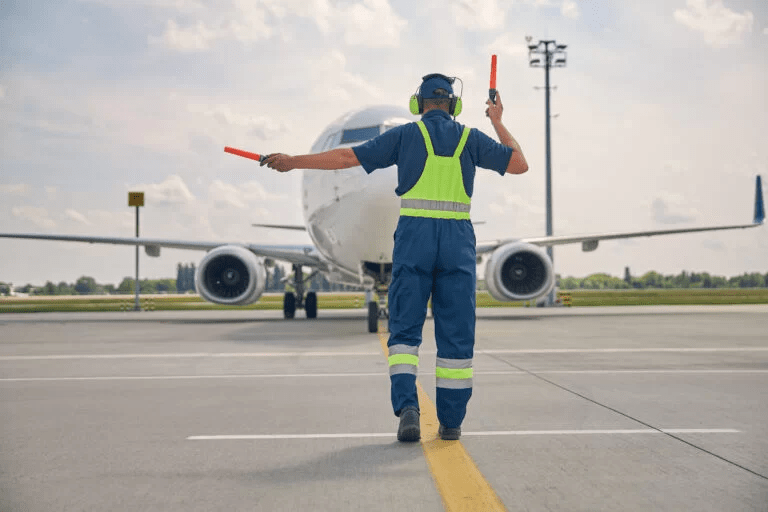Airport ramp services are a critical component of airport operations, ensuring that aircraft are properly supported on the ground before takeoff, after landing, or during layovers. These services encompass a wide range of tasks that focus on maintaining the safety, efficiency, and operational readiness of aircraft and airport facilities. Ramp services are often carried out by specialized ground handling companies, airlines, and airport authorities.
Ramp services involve various teams that work together to ensure a smooth flow of aircraft movements, timely departures, and safe ground operations.

1.Aircraft Marshalling
2.Baggage Handling
3.Aircraft Fueling
4.Catering Services
5.Aircraft Deicing and Anti-Icing
6.Pushback and Towing
7.Ground Power and Air Conditioning
8.Cargo Handling
©2024. RSP Aviation Training Institution . All Rights Reserved.